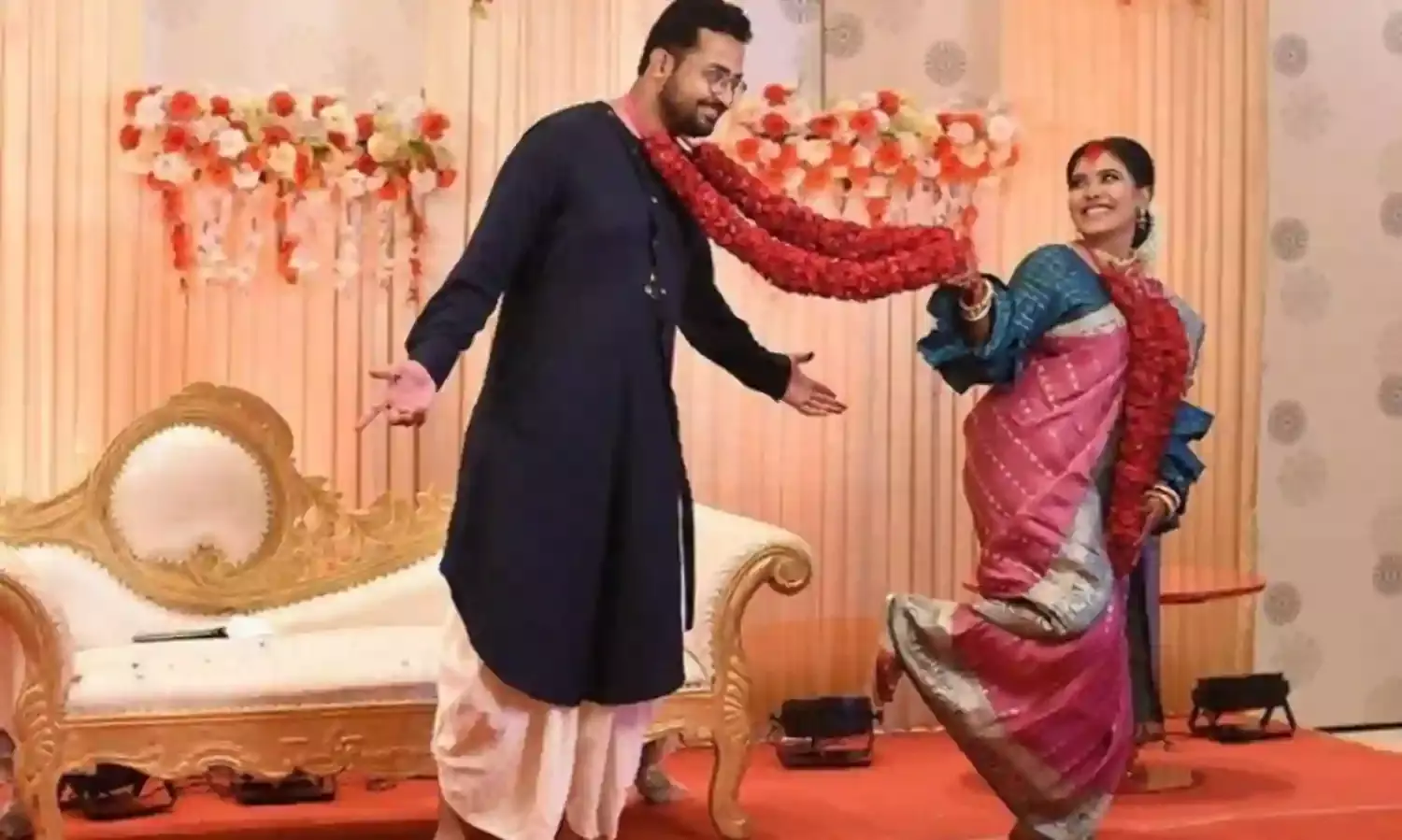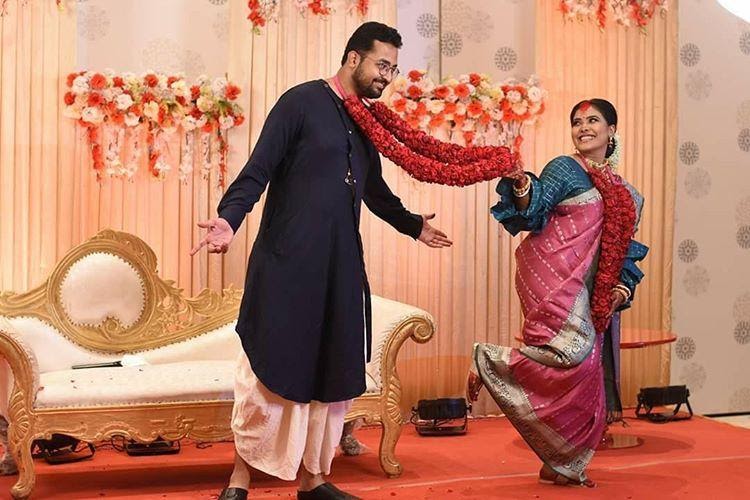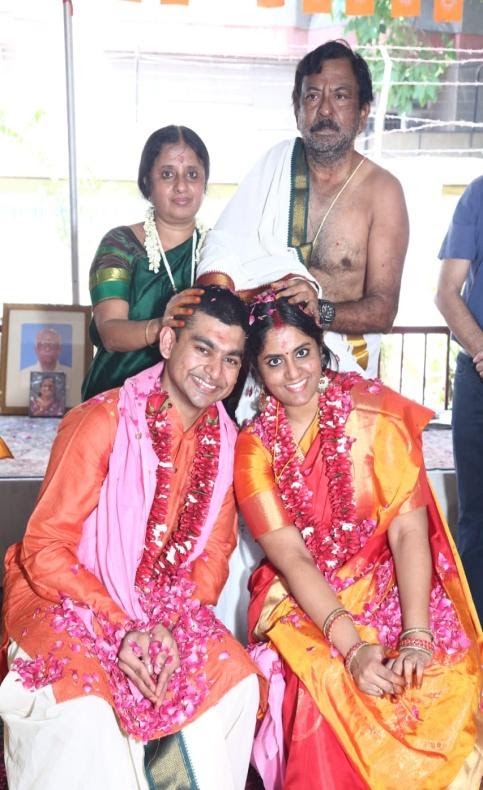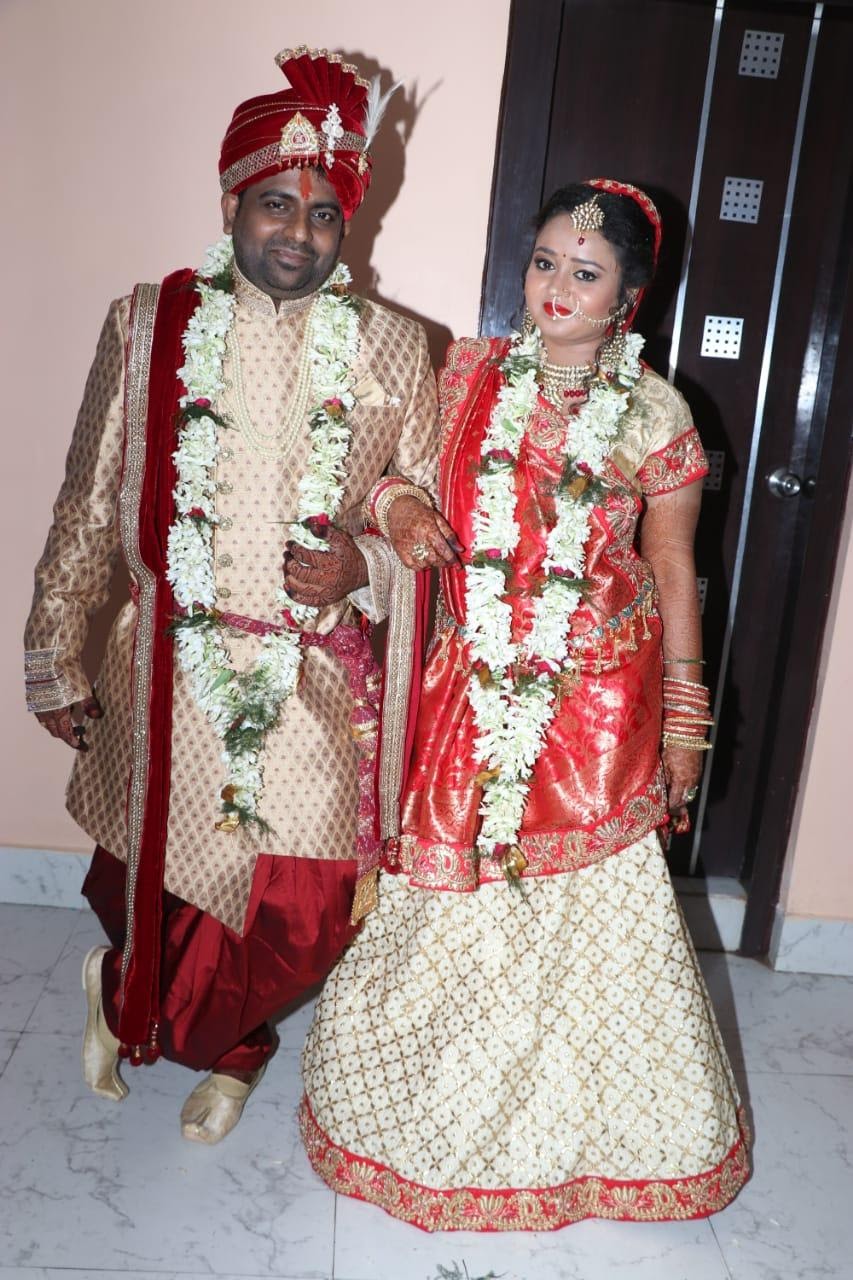Covid-19 Has Changed the Indian Wedding Industry
From ceremonies on zoom to masks for guests

The coronavirus pandemic has taken a toll on every possible aspect of our normal lives. From Zoom lessons instead of classrooms to “work from the couch” instead of office cubicles, this year has been full of adapting to the new. The bustling Indian wedding industry has also been forced to adapt, with Covid-19 changing the format of engagements and ceremonies.

Picture credit: Priyanka Chakraborty
“The most important thing for us was we really wanted to get married and so we did, and we are happy about that,” says Priyanka. Priyanka Chakraborty and Sombit Chowdhury got married on July 17 in Kolkata. For them, the experience of the Indian wedding was unlike anything they had previously envisioned.
They had their immediate family attend the ceremonies and abided by the local mandate of a social gathering of a maximum of 25 people including the help and tech crew. The couple decided to go for live streaming on Zoom to involve friends and family who were not able to be a part of their celebration.
When asked how culturally and emotionally different her wedding was compared to what she had hoped, Priyanka replied, “The cultural change was definitely there. It was more difficult for our relatives, I presume, to accept that we were not getting married the usual way.”
Many of Priyanka’s friends also could not attend the wedding, but thanks to online video calls, they were able to witness the rituals.
“I missed my friends and family a lot, but we kept on doing zoom calls on rituals like the mehndi and cocktails as well, so it worked fine,” she said.
Expecting a change in celebrations during this period is not out of the ordinary. According to Priyanka, “the biggest change was that we did not have a lot of people, so there was definitely less chaos, but it was also less fun that way.”
When asked about the safety procedures and how people attended the wedding while maintaining social distancing protocols, Priyanka added “for safety procedures, we were very strict about the number of people attending the wedding. We ensured social distancing, for which we booked a hall of 100-150 people for 25 people.Also, we ensured that the sitting area along with flowers, garlands, and all other decorations were sanitized.”

Picture Credit: Sree Arvind Harish
Sree Arvind Harish and Sona Venkatesan were all set to have a traditional arranged marriage which was earlier supposed to take place in Chennai. However, because of the pandemic, the ceremony had to be held in Delhi. “It was quite a unique wedding and I was happy that the phrase ‘friends like family’ was more of ‘friends are family’ at my wedding.”
According to Arvind,“The biggest challenge was having our parents attend the wedding.” Arvind’s parents are above 65, so it was a problem for them to attend the wedding - as there are restrictions on the movement of people in that age group due to the pandemic.
His friends had to be his biggest support during the wedding.
According to him, the major challenges were centred around travel and health-safety in the pandemic.
As of now, the online wedding is the new zeitgeist, thanks to Covid019. For Arvind and Sona it was a last-minute decision. However, according to them, “It was certainly quite a thing for all our dear ones who missed being in person for our wedding.”
On being asked how the lockdown brought a change in the celebration, Arvind replied, “The quarantine requirements made it very tough for her parents who had to stay back for 7 days here and were quarantined for 14 days when they returned home. There was a lot of mental stress in finalising the venue.” Additionally, “we distributed a small box with four assorted sweets as the pandemic made any kind of community dining impossible and no other cooked food could survive the night”.
As social distancing is now a thing, there were many changes to the wedding as well. When asked about how it affected their ceremony, Arvind said, “Certainly that was a reason because the attendance had to be restricted to 30 and I apologized to my close friends and family. We were also very strict about wearing masks; so much so, that the photographer and the pandit had to request us, the bride and the groom, to remove the masks.”

Picture Credit: Saloni Agarwal
“No Ghodi, No Bandbaja.” Bivek Kumar Agarwal and Saloni Agarwal got married on June 19 in Patna. For them, it was a challenging yet fun and happening ceremony. When asked, Saloni described it as “an emotional rollercoaster.” She further added, “People even a day before were saying that their trains will get cancelled. And I had that constant fear inside, hoping that no one gets coronavirus.”
It was a stressful situation, where people feared meeting anyone,and on being asked how they managed social distancing, Bivek replied, “We had planned to enforce some precautionary measures but that didn’t work out in the end and the wedding was chaotic.” While it might come as a surprise to outsiders, there is no denying how hard it is to control an Indian wedding full of colours, people, and rituals which need participation from the guests.
It was also interesting to know how they were addressing post-wedding rituals that are prevalent in their culture and often require visiting spousal homes. Bivek claimed, “We have been able to perform the necessary ones. However, for us, the wedding was more important;the rest can be compromised.”
Indian weddings are events that bring together people from different sectors, right from wedding planners, technicians, photographers, to caterers, artisans and many more. That and the inherent traditionalism associated with the Indian wedding automatically make the ceremonies a big deal for both families.
The wedding industry in India is huge and it employs thousands of people. Unfortunately, the pandemic this year has brought a great deal of loss to the stakeholders of this sector. While talking to a few wedding planners, it became apparent how much of loss the industry is facing.
A Ranchi based wedding planner explained “We are providing everything, right from sanitizers to mask, and we are even initiating online weddings. However, we are not getting the big weddings. We are getting smaller ceremonies, but how will we distribute that amount among so many workers? Right from photographers, tent workers, caterers, videographer,etc.”
The pandemic has brought bigger problems for wedding planners and people working with them.
When asked about the challenges that they are facing, a Jamshedpur based wedding planner said, “All our events are postponed due to the pandemic but till when? We don’t know.” He further added, “All our labourers are facing losses as well. We tried our best to pay them the 100% amount for a few months, but now we have come down to 50%, and it’s only getting tougher.”
A wedding planner based in Patna explained how they maintained social distancing and good hygiene among the guests. He said, “We sent out E-invitations, we ensured all our staff wore caps, masks and we kept on providing sanitizer to the guests. We sanitized the venue as well. All the decorations right from flower petals to the dining section were sanitized.”
Towards the end of the revelations, the only thing left to know was what changes will remain once the pandemic is over. To which a Jamshedpur based wedding planner explained, “One thing that will surely happen, is that people from our industry will get diverted to other jobs as well. There will be add ups.” He added, “The wedding business will change.”



